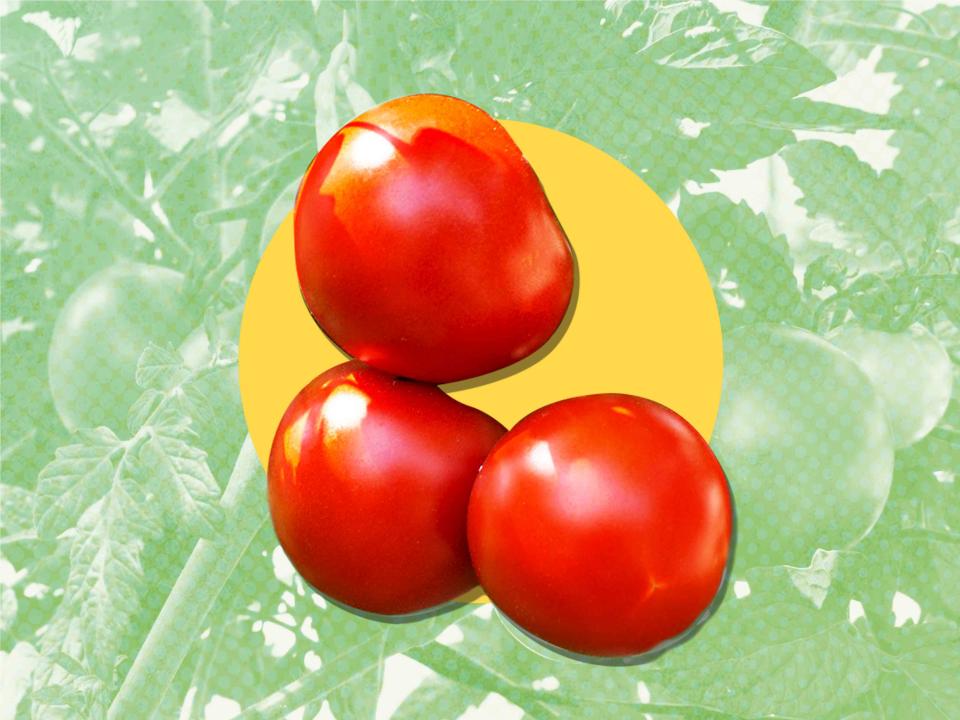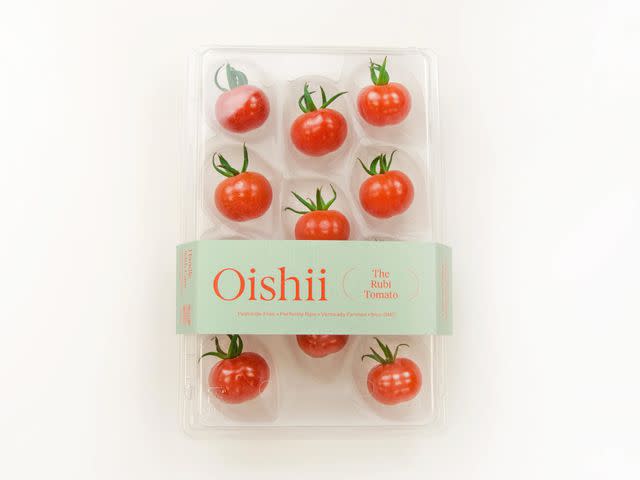There’s a New Tomato Coming to Stores That Promises To Be Perfectly Ripe Year Round
Though we can't quite believe the price.

Dotdash Meredith / Janet Maples
As a lifelong New Jersey resident, I will shout from the rooftops about the amazing tomatoes we grow in the Garden State’s soils, including the soil in my backyard. Despite my not-so-attentive gardening skills, I always get a delicious harvest of various slicing tomatoes and grape tomatoes. My family looks forward to the first BLTs and tomato sandwiches. I caprese it up all summer long. And when summer is waning and my cherry tomatoes are still going strong, I go into tomato jam-making mode, freezing it in small batches to pull out throughout the winter months for burgers.
So when I read about a new tomato, coming from New Jersey, my ears perk up.
The New "Always In Season" Rubī Tomato
The idea of year-round tomatoes that taste great is appealing. Buying tomatoes at the store when they are out of season is often a disappointment. A new tomato that promises to be perfectly ripe, 12 months a year, and grown in my home state seems worth learning more about.
The vertical farming company Oishii just released the Rubī tomato, saying it “offers the perfect balance of sweetness, acidity, and umami, offering pure deliciousness.” Vertical farming is a method that grows plants in vertically stacked layers, often hydroponically. While these tomatoes are grown within the state borders, they aren’t grown in the state’s soils. No one in New Jersey would call them a “Jersey tomato” (and neither does the company making them). That’s fine. Vertical farming has its benefits.

Oishii
The method uses a small amount of space to efficiently grow a lot of plants—in Oishii’s case fruit and vegetable plants. It can be done indoors or outdoors, but indoor vertical farms have the advantage of producing year-round. According to the USDA, vertical farming can result in 10 to 20 times the yield per acre compared to open-field crops. The method can be done in the middle of a city, where no farmland is available to grow local produce.
The Rubī tomato is grown in an indoor facility in Jersey City. It’s non-GMO, free from pesticides, always in season, and hyper-local. The tomato is currently only available in Whole Foods locations in proximity to where it’s grown.
It all sounds great. With one big caveat (aside from location). If you’re looking to get your hands on Rubī tomatoes—which look to be the size of cherry tomatoes based on an Oishii website photo of one of the tomatoes in between someone’s thumb and forefinger—you should be prepared for a little sticker shock. They’re sold in blister packs of 11 tomatoes for $9.99, making them about 91 cents a tomato.
While I'm curious to see if they live up to the hype, I definitely won’t be using them to make tomato jam. I'll stick to my own garden for that.
Read the original article on All Recipes.


